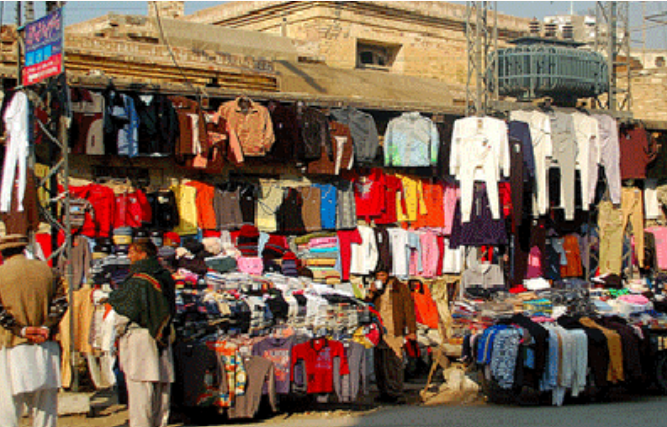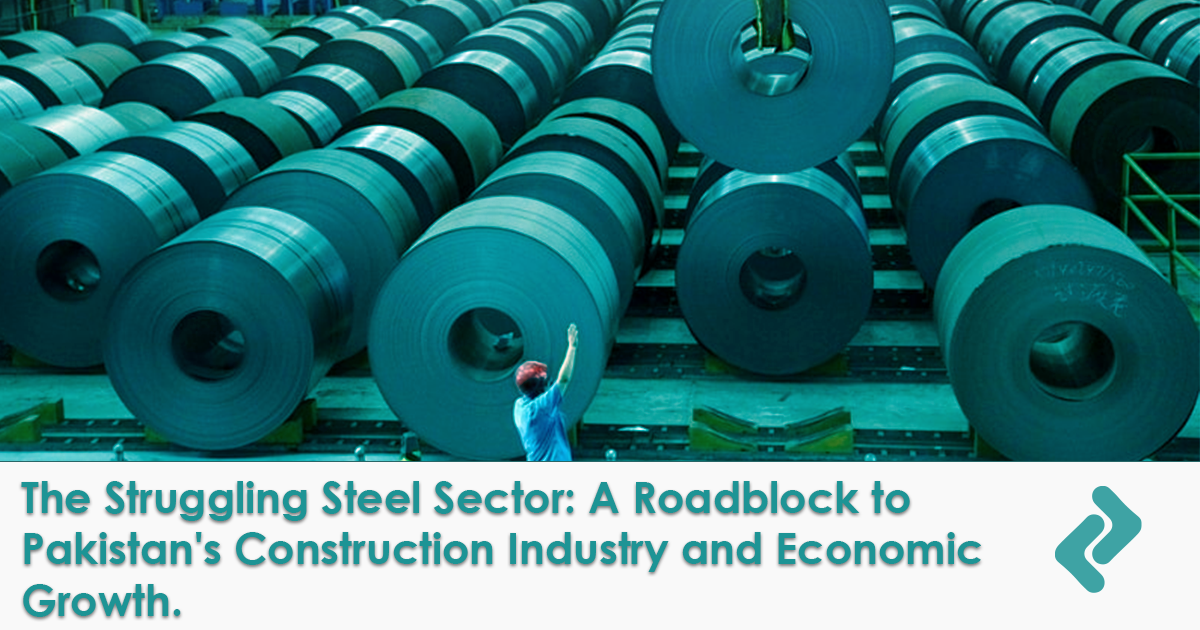Due to the prevailing difficult economic conditions, characterized by various factors such as inflation and a volatile currency exchange rate, the construction industry in Pakistan has been facing significant challenges. These challenges have led to a staggering 200% increase in the price of construction materials and a rise in the cost of borrowing from banks, which has resulted in a substantial slowdown in construction activities.
The Association of Builders and Developers of Pakistan (ABAD) has recently expressed deep concern over the situation, claiming that approximately 50% of ongoing construction projects have come to a halt. The main cause of this interruption is attributed to a steep hike in the prices of steel bars, primarily caused by a cartel of large-scale steel manufacturers. This unjustified increase has dealt a severe blow to the construction sector, exacerbating the already difficult economic circumstances.
Data issued by the State Bank of Pakistan (SBP) further shed light on the gravity of the situation. It reveals that the import of steel and scrap iron has plummeted by over 50% in the current fiscal year. Comparing the first nine months of the current fiscal year (FY23) with the same period last year, the import of scrap iron and steel witnessed a substantial decline of 50.6%, reaching a value of $859.3 million.
In contrast, during the corresponding period in the previous year, the import of scrap iron and steel was recorded at $1,739.5 million. Moreover, the import of finished iron and steel products experienced a significant drop of 36.6% during the same period, amounting to $1,321 million in FY23 compared to $2,085 million last year.
The adverse impact of this decline in steel imports goes beyond the construction sector. Iron and steel are considered crucial materials for the overall growth and development of an economy. Consequently, Pakistan's economic growth for the current fiscal year has already been severely affected, and it is projected to achieve a growth rate of merely 0.5%. This slowdown is further evidenced by an 11.59% year-on-year decline in the Large-Scale Manufacturing sector in February, reflecting a sharp reduction in steel consumption.
A detailed study conducted by the Pakistan Credit Rating Agency (PACRA) reveals a concerning trend of declining steel consumption in Pakistan over the past five years. In addition, the per capita consumption of steel in Pakistan remains considerably lower than the global average. This prolonged decrease in steel consumption, coupled with the reduced import of iron and steel, has had a detrimental impact on the entire industrial sector, with the construction industry being hit particularly hard. The prices of construction materials, including steel, have reached record highs, experiencing an alarming increase of over 100% within a single year.
It is worth noting that Pakistan's annual demand for steel products hovers around 13.5 million tonnes in FY22. While approximately 73% of the country's demand is met through local production, the rest is fulfilled through imports. However, the current low import levels reflect the overall reduced consumption of iron and steel, negatively affecting the industrial sector.
The situation in the steel industry is further compounded by the absence of activity in Pakistan Steel Mills (PSM), a state-owned giant with a production capacity of 1.1 million tonnes. PSM has remained inactive since June 2015, leading to increased reliance on private corporations within the steel sector. The Pakistan Steel Re-Rolling Mills Association represents 173 major players in the steel industry.
Recognizing the severity of the situation, the Engineering Development Board (EDB) has written a letter to the Ministry of Industries and Production, appealing for the declaration of steel industry raw material (scrap) as an essential item. The EDB argues that the import of any raw materials required for the manufacturing of engineering goods, which are not produced locally, should not be restricted. They emphasize the importance of supporting and providing a level playing field for the local manufacturing industry.
To address the challenges faced by the steel sector and restore stability to the overall economy, the government must give utmost priority to steel sector products. This includes allowing the opening of letters of credit (LCs) for the import of steel scrap and other steel-related items. Such measures would not only revitalize the steel industry but also contribute to the growth and development of the broader economy, fostering a conducive environment for the construction and industrial sectors to thrive once again.















.png)




